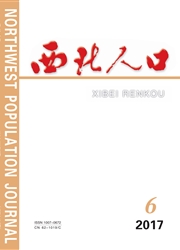

 中文摘要:
中文摘要:
考虑家庭承诺支出和消费习惯形成等因素会改变最优风险资产配置比率。本文建立了基于家庭承诺支出和消费习惯形成不同约束形式下的家庭风险资产配置的理论模型,设计对应的代理变量,以课题组2015年采集的《中国居民家庭资产配置调查问卷》数据为样本进行实证检验。实证结果表明:以住房按揭贷款为代理变量的家庭不变承诺支出会降低股市参与率,但对风险资产持有比率影响不明显;以家庭上学人数为代理变量的可变承诺支出影响不显著,健康状况对股市参与率和风险资产持有比率都有显著的正向影响,但医疗保险无法对这一承诺支出起到很好的对冲作用;作为外部习惯形成代理变量的城市整体消费情况并不影响家庭股市参与率,但会增加风险资产持有比率。
 英文摘要:
英文摘要:
Household Committed expenditure and consumption habit formation will affect optimal risk asset allocation.Firstly,this paper constructs several theoretical models of committed expenditure and habit formation on household risky asset allocation.Next,this paper uses data from questionnaire made in2015to test these models.The empirical study shows that constant committed expenditure(mortgage)has a significant negative impact on risky asset participation but not on allocation ratio.Volatile committed expenditure(student numbers)doesn’t influence significantly both on participation and ratio.Another volatile one(health)can influence significantly on both explained variables,but hedged one(medical insurance)doesn’t influence significantly.And external habit formation(overall urban consumption)doesn’t influence participation significantly,but will affect allocation ratio positively.
 同期刊论文项目
同期刊论文项目
 同项目期刊论文
同项目期刊论文
 期刊信息
期刊信息
